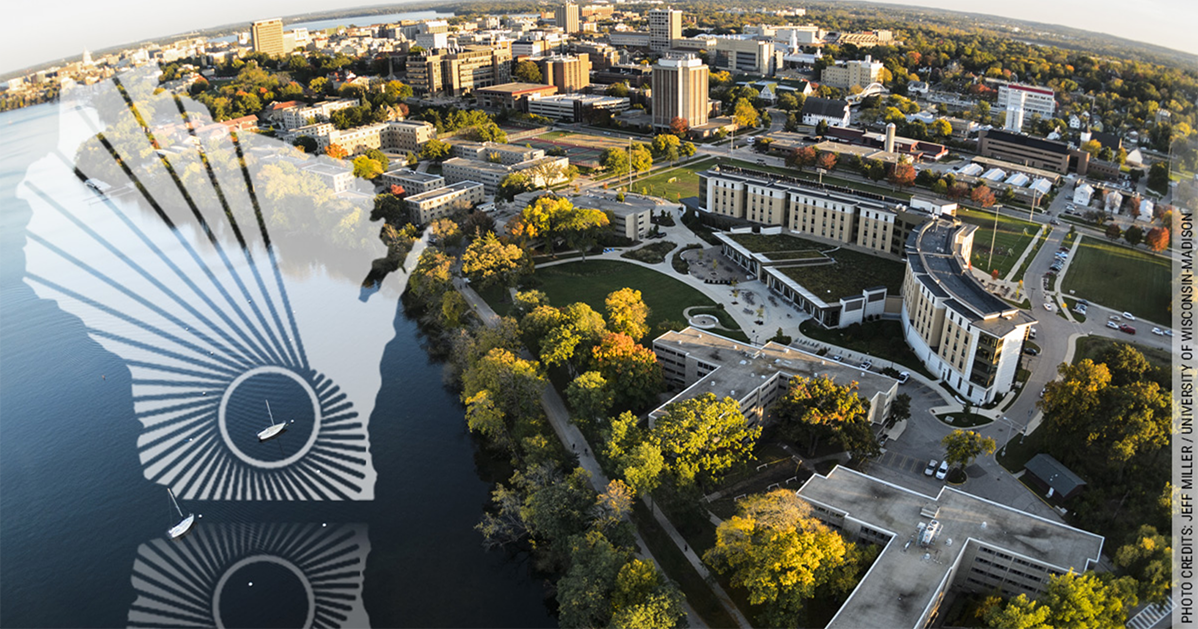
When I came to UW-Madison from Dartmouth in 2002 to become the dean of the business school, I confess I didn’t fully appreciate the concept of the Wisconsin Idea. In my view, making an impact on the community was a no-brainer. If the business school wasn’t relevant, then what were we doing?
I quickly came to realize what makes the Wisconsin Idea special.
First, moving from a private institution to a public university automatically brings a deeper sense of community responsibility. More importantly, I saw firsthand how deeply the Wisconsin Idea permeates the ethos of the entire faculty. It’s a positive, proactive engagement driven by a deep commitment to helping people throughout the state.
This steadfast commitment to the Wisconsin Idea breeds an innovation-focused mindset. The notion that the work of the university should touch every family means you have to think about how the knowledge you’re creating can be applied to solve real problems. That is what innovation is about, after all. And we take it very seriously here. Now, we have a great opportunity to leverage alumni and friends to help translate those innovations into products, services and jobs.
Building a greater entrepreneurial culture in Wisconsin requires three things: ideas, money and people. The UW is an excellent research university that develops plenty of intellectual property. Capital is mobile, and investors will find great opportunities if they have easy access to information. But because Madison is historically a government and university town, the private business community on the periphery isn’t that big, with little bandwidth to take on new projects. At any given time, few people are able to leave a job and pursue a startup opportunity, and even fewer are great matches for a particular faculty member’s idea.
So, while the university has no shortage of great ideas, we could certainly do a better job matching those ideas with advisory groups and management and leadership teams that can credibly present a business opportunity to venture capitalists and angel investors. We need help from people with entrepreneurial skills and expertise to be advisors, counselors and mentors. And who better to play those roles than our 441,500 UW alumni?
Badger alumni have positive feelings about Madison, the university and the state. Their strong connections to the university often lead to a lot of volunteering and giving back. Depending on their industry expertise and stage in life, some may be interested in moving back here or able to participate in advising newly formed companies. By mobilizing the base of alumni to be active partners in this work, we can accelerate economic development in the region while involving them in the expression of the Wisconsin Idea.
In fact, many notable companies got their start this way – alumni lending their expertise and getting involved with faculty, staff and students to form companies. For example, the online food delivery service EatStreet was founded here on campus less than 10 years ago. What started as student idea, through alumni mentoring, faculty guidance and more than $38 million from investors, turned into a thriving business in more than 250 cities. Numerous collaborations and networks engage alumni to help students and entrepreneurs, such as the Weinert Center for Entrepreneurship, Merlin Mentors and gener8tor.
With a little help from our alumni, more innovations can make their way from the UW to the market, strengthening Wisconsin’s economy and enhancing the university’s contributions to the world.
Michael Knetter is CEO of the University of Wisconsin Foundation and Alumni Association, the independent entity that raises funds and builds affinity for the university. This commentary is part of a series of articles organized by the Wisconsin Alumni Research Foundation (WARF). For over 90 years WARF has promoted a cycle of innovation through advancement of University research discoveries to the market and reinvestment in research at UW-Madison. Comments on this piece are encouraged at [email protected]. See warf.org or WARF’s Cycle of Innovation for more details on WARF.
- See all articles in the Innovation and the Wisconsin Idea series.
- Send comments to: [email protected]
- Sign up to be alerted when a new article in this series is posted.
- See warf.org or WARF’s Cycle of Innovation for more details on WARF.
